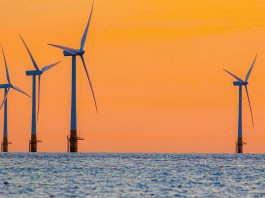Cittadinanzattiva’s Mariano Votta and Tiziana Toto discuss the SI(e)NERGIA and NUDGE projects in the context of how the behaviour of citizens can play a crucial role in energy efficiency and thus a low-carbon, climate resilient future.
It is not only energy sources which need to become more ‘renewable’, but consumers’ behaviours and choices, too, if we are to ultimately achieve Objective 7 of the UN’s Agenda 2030, which is aimed at ‘ensuring access to economic, reliable, sustainable and modern energy systems for all.’
To this end, the role played by all market actors remains crucial, from the political class that defines the rules, to the authorities responsible for implementing them, to the operators who not only have to respect these rules but also offer virtuous and competitive competition, with full respect for consumers. These are the main messages to emerge from the civic consultation carried out at the national level by the Italian NGO Cittadinanzattiva in the framework of the project ‘Si(e)Nergia: citizens and businesses for energy sustainability”.1
The consultation focused on the citizen’s point of view and the level of their engagement regarding the issue of energy sustainability following the adoption of the new National Energy Strategy (SEN). The consultation process for the SEN had highlighted the need to accelerate, in line with the long-term European objectives (2050), efforts to make the Italian energy system increasingly sustainable from an environmental perspective, with much attention being paid to the effects of prices, the security of supplies, the environmental impacts of new technologies, and the energy transformation itself.
It is precisely in this context that SI(e)NERGIA aimed to better understand the level of awareness and engagement of citizens in energy sustainability by identifying the most important aspects from the point of view of both citizens and the various stakeholders involved in the sector.
NUDGE
In continuity with the initiative at the national level, Cittadinanzattiva has also recently been engaged at the EU level, together with a multidisciplinary team of 10 partners, within the Horizon 2020 ‘NUDGE’ (NUDging consumers towards enerGy Efficiency through behavioural science) project. NUDGE began in September 2020 on the occasion of the annual Citizens’ Energy Forum (to which Cittadinanzattiva is invited each year by the EU’s institutions),2 and its aim is to induce energy-friendly behaviour in end-users through:
- Behavioural interventions;
- Utilising solid expertise in behavioural science;
- (Mobile) user interface and policy design;
- Establishing synergies between different stakeholders (energy providers, co-operatives, and communities; consumer associations; and technology providers); and
- Developing an extensive network of expert groups and industrial and consumer associations amplifying the potential for tangible impacts on policy making at all levels.
The NUDGE project’s goal is to implement behavioural interventions for long-lasting energy efficiency behaviour changes, paving the way to the generalised use of such interventions as a worthy addition to policy making. In the first instance, the project will be implemented in five ‘pilot’ countries: Greece, Belgium, Germany, Portugal, and Croatia.
The ‘Si(e)Nergia project and the Italian civic consultation
Most citizens are aware of what energy efficiency is, but they may not be aware of the many tools and individual choices that are available to them and which would enable them to use energy more sustainably. This is perhaps evinced by the fact that one out of every two citizens ignores the deductions provided by some energy suppliers when more efficient and sustainable choices are made and, moreover, that in the face of the ever-pressing need to make savings, only three out of four ask for understandable bills based on actual consumption. However, ecological awareness is growing, and we have found that almost one out of every two citizens would be willing to spend more on an energy offer if that energy were to be largely or entirely from renewable sources.
These are just some of the results to have emerged from the civic consultation promoted by Cittadinanzattiva in Italy within the Si(e)Nergia project, which was carried out with the support of Acea, Edison, Enel, Eni gas e luce, and Sorgenia.3
According to the 2,430 citizens interviewed as part of the project, we have found that, in Italy, energy sustainability is seen to primarily concern the increasing diffusion of energy from renewable sources (63.3%) and the efficient use of energy (62.8%); followed by the availability of innovative energy offers (49.5%), the reliability and correctness of suppliers (48.2%) and therefore economic accessibility regarding supply (44%).
It also emerged that some suppliers, as well as citizens, believe that the political class plays a key role in the pursuit of energy sustainability (76.7%) and that both companies and citizens agree on the same priorities. For companies, a key role can be played by individual citizens, who, on the other hand, are much less confident about the possibility of their behaviour having a positive impact on energy efficiency (only 28% believe they have a significant impact). In addition, only 45% think that consumer choices can encourage the spread of virtuous behaviour among companies by actually rewarding those which are the most reliable and responsible.
Furthermore, the civic consultation has demonstrated that economic accessibility to the supply of energy presupposes clear and easily understandable bills (74.1%), concessions/discounts for the less-wealthy sections of the population (74.7%), and, above all, the regular availability of calculated bills based on actual consumption, thus avoiding adjustments and maxi bills (76.8%). Indeed, the study found the main problems to concern the regular availability (or lack thereof) of energy bills calculated on the basis of actual and non-estimated consumption (45.5%), the insufficient clarity and comprehensibility of the bills (43.1%), and the lack of customisable offers (41.3%). Likewise, the percentage (47.5%) of those who are not aware of the ‘Energy Bonus’ (gained for obtaining both electricity and gas from the same supplier) remains significant. And even among those who are aware of it, it is underlined that measures to better publicise the bonus (63.5%) and the amounts destined to applicants (49%) are still inadequate.
Innovation for a low-carbon future
Innovation is an area where the point of view of citizens converges quite significantly with what companies believe to be the prevailing orientation of users. Indeed, citizens believe innovative energy services to refer to those products and solutions related to energy efficiency (53.7%), such as boilers, air conditioners, LED lamps, the installation of photovoltaic systems, and so on. This is in addition to a varied sense (53.4%) of how additional services such as insurance, the maintenance of boilers, and general energy consultancy also fit into this category. Quite surprisingly, 49% of the citizens placed electric mobility in third place in terms of what they saw as innovative energy services.
When prioritising innovative energy services, companies first choose innovative ways of contacting the supplier (e.g. dedicated chat, social networks, etc.), followed by applications for customers to make their homes ‘smart’ (e.g. the remote control of appliances and heating, etc.), with the aforementioned range of additional services coming third.
How much can individual citizens affect energy efficiency through their behaviour?
Companies believe that the behaviour of citizens could have a profound impact on energy efficiency, while citizens themselves are less assured, with just 42.6% believing that their behaviours can affect change. In confirmation of this, 46% of citizens also say that when it comes to innovative energy services, they have limited themselves to the installation of LED lamps and the purchase of low-consumption appliances.
Interestingly, over 50% of citizens were found to ignore the deductions provided for energy efficiency. On the other hand, ecological awareness does seem to be growing, with 67.8% of citizens expressing an interest in the origin of the energy used, and 45.6% stating that they would sign an offer for the supply of energy produced exclusively or mostly from renewables, even if it were not the cheapest.
The ‘NUDGE’ project’s rationale
In an effort to meet the EU’s ambitious targets for a low-carbon future, increased energy efficiency and, indeed, to cope with the challenge of climate change, public authorities, Distributed System Operators (DSOs), and other stakeholders are actively investing in improving energy efficiency. Much of this investment concerns digital infrastructure (e.g. smart meters) that enables energy consumers to monitor and manage their energy usage more actively and efficiently. However, the Holy Grail of energy efficiency demands drastic changes in the overall energy-related behaviour of consumers, from the way they use their heating and electrical appliances to the way they cater for the (structural) energy inefficiencies of their houses.
Identifying interventions that could bring about changes in this behaviour, however, is a major challenge, and the relevant stakeholders have therefore been investing a significant amount of effort and resources to better understand the many factors that determine consumer behaviour and the decisions consumers make about energy consumption matters.
By far the most influential study on the subject comes from the 2008 work of Richard Thaler and Cass Sunstein4 in an introduction to the notion of ‘nudging’, which they define as being ‘any aspect of the choice architecture that alters people’s behaviour [Sic] in a predictable way without forbidding any option or significantly changing their economic incentives.” In that original definition, the intervening parties may be both public and private and a nudge may be motivated by various types of interests. Nevertheless, the focus of the book and much of the early literature that followed it has been on nudges that may be undertaken by public authorities aimed at improving the welfare of society.5 Nudging techniques and, more broadly, behavioural interventions, have been considered in the energy sector as a means to foster more energy-friendly behaviour from end users.
The grand objective of the NUDGE project, which is being co-ordinated by the Institute for European Energy and Climate Policy, is to systematically assess and fully release the potential of behavioural interventions towards achieving higher energy efficiency. To achieve the following concrete objectives, the project consortium sets out to convincingly address challenges through a generalised practice of behavioural interventions:
- Objective 1: Tailor the design of behavioural interventions to individual psychological and contextual variables by leveraging the data collection capabilities of digital mediation platforms and data analytics. The goal of NUDGE is to tailor the interventions, behavioural or not, to users and to seek to identify those interventions that could have the highest behaviour-changing impact;
- Objective 2: Execute extensive field trials (pilots) that address multiple instances of consumer behaviour, implementing different mixes of behaviour-based and traditional interventions even across participants of the same pilot;
- Objective 3: Develop a systematic core and contextual research protocol to continuously measure the impact of the implemented behavioural interventions; and
- Objective 4: Consolidate the findings of pilots into recommendations towards policy makers and relevant stakeholders.
Taking into consideration the Italian situation with regard to matters concerning renewable energies and, moreover, given the EU’s position on the importance of energy efficiency, Cittadinanzattiva decided to join the NUDGE consortium as the only Italian participant. Here, we have the aim of contributing to the implementation of an end-to-end approach and to achieving the promoting and incentivised adoption of behaviourally tested policy interventions at local, regional, national, and EU levels.
With the above-described initiatives, the Italian consumer association Cittadinanzattiva confirms not only its long-term commitment to energy-related issues,6 but also its interest in activities designed to achieve the objectives of the 2030 Agenda. This interest has further been underlined at the EU level by the political initiative launched in the immediate aftermath of the 2019 European elections by its EU branch, Active Citizenship Network, together with the EU umbrella consumer association ‘European Consumer Union’. This was designed to promote the inter-institutional group known as ‘SDGs for Well-being and Consumers’ Protection’, with the aim of promoting consumers’ rights and supporting the new European Commission’s priorities as defined in the ‘European Green Deal’.7
References
- cittadinanzattiva.it/progetti-e-campagne/consumatori/11370-si-e-nergia-cittadini-e-imprese-per-la-sostenibilita-energetica.html
- http://activecitizenship.net/newsletter/2017_09_11-50
- cittadinanzattiva.it/comunicati/consumatori/11541-presentata-la-nostra-indagine-sulla-sostenibilita-energetica-cittadini-ancora-poco-informati-su-strumenti-e-comportamenti-virtuosi-ma-piu-attenti-alle-scelte-ecologiche.html
- Thaler, and C. Sunstein. Nudge: Improving Decisions About Health, Wealth, and Happiness. Rev. and expanded ed. New York: Penguin Books, 2009
- Mongin, M. Cozic. ‘Rethinking Nudge: Not One But Three Concepts’. Behavioral Public Policy, vol. 2, no.1, pp.107-124, 2018
- cittadinanzattiva.it/approfondimenti/consumatori/9775-politiche-dell-energia-l-impegno-di-cittadinanzattiva-a-livello-nazionale-ed-europeo.html
- activecitizenship.net/gallery-home/306-towards-the-inter-institutional-group-sdgs-for-well-being-and-consumers-protection.html
Co-Authors
The co-authors thank Giulia Decarolis and Maira Cardillo, Active Citizenship Network staff, for their support.
Tiziana Toto
Responsible for the Energy Sector
Cittadinanzattiva
t.toto@cittadinanzattiva.it
Tweet @Cittadinanzatti
www.cittadinanzattiva.it
Mariano Votta
Director
Responsible for EU Affairs
Cittadinanzattiva
Active Citizenship Network
m.votta@activecitizenship.net
Tweet @activecitnet
www.activecitizenship.net
Please note, this article will also appear in the third edition of our new quarterly publication.









